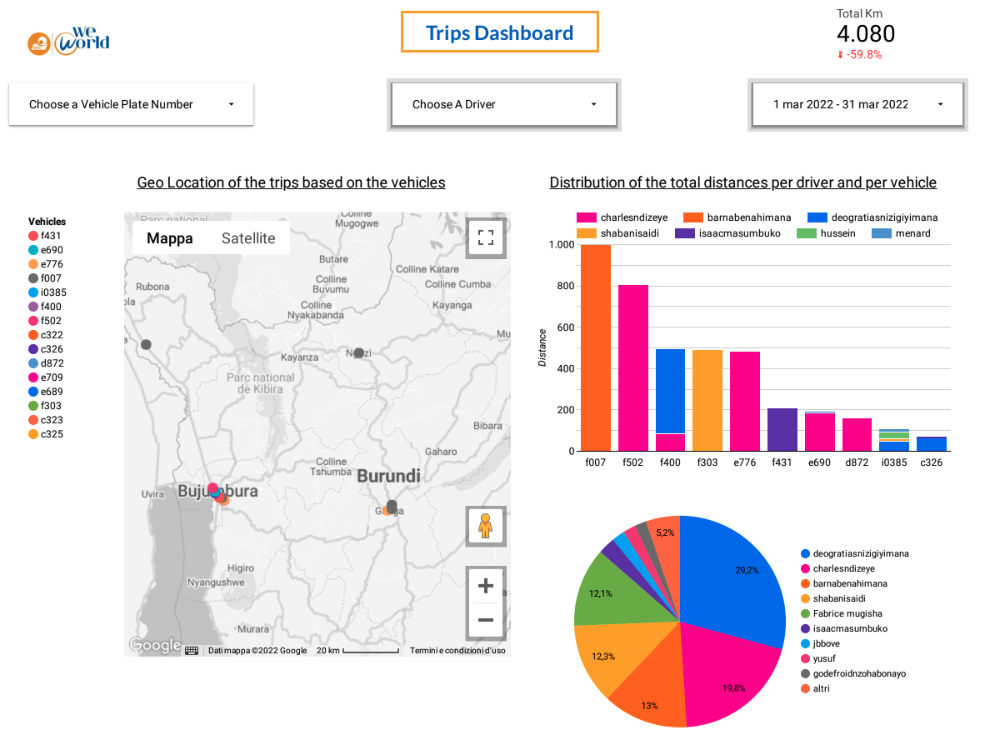Beyond the technology
How WeWorld-GVC is using KoboToolbox to enhance fleet management and humanitarian logistics in Burundi
When it comes to providing food, water, and medicine to those affected by complex emergencies, efficient humanitarian logistics are essential to ensuring that critical relief supplies and services arrive quickly and reach those in need. Since the time, location, and severity of a crisis is unpredictable, relief requirements and logistics cannot be fully determined until after a major crisis event occurs. Because of their complexity, humanitarian logistics are the most expensive aspect of disaster relief efforts, comprising about 80% of operational costs.
In Burundi, WeWorld-GVC (WW-GVC) is using KoboToolbox as the primary data collection tool for their fleet information management system and optimizing operational logistics. The WW-GVC Burundi logistics department manages a fleet of 30 vehicles and 35 motorbikes to support ongoing projects focused on water, nutrition, socio-economic development, and health. To effectively manage the fleet, they must maintain accurate and detailed data on vehicle use, including how much fuel is used and any maintenance or accident reports. Operations depend on the insights derived from complete, accurate, and timely reporting on the vehicle fleet. Frequent and severe fuel shortages in Burundi make it especially important to have real-time visibility indicators related to fuel usage. The data collected on the fleet ensures the safety of operations, mitigates against risks, and enables evidence-based decision making at the organizational level.
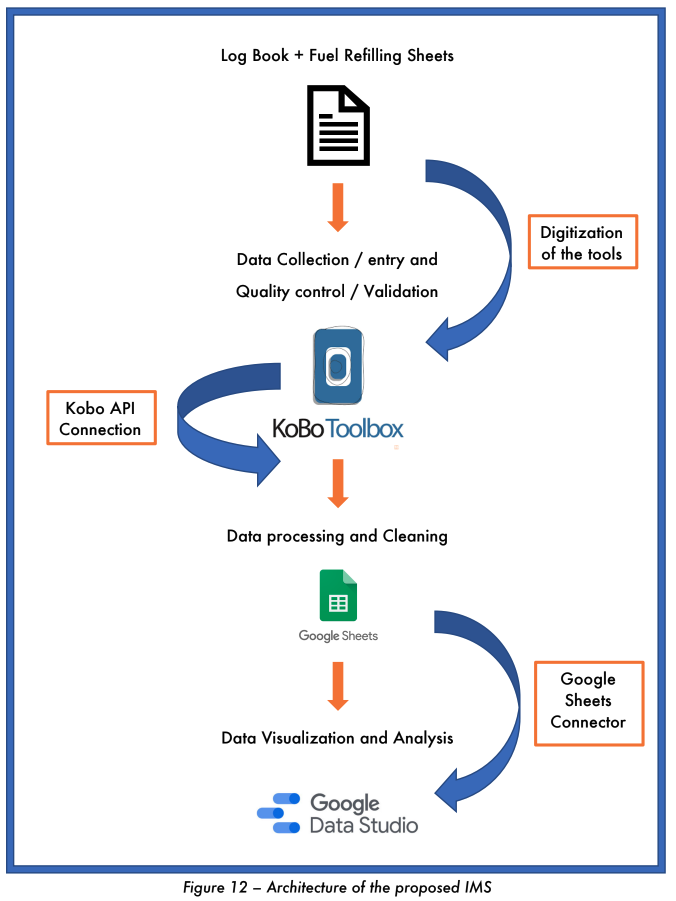
Initially, the WW-GVC logistics department collected fleet information using paper-based methods. Every month, two logistics department staff members would manually enter all the data submitted by 31 drivers for every single trip made onto a spreadsheet. The process was time consuming—requiring two weeks to a month to record the immense amount of data—, which meant real-time information on fleet performance was not available. The manual data collection and entry methods also increased the likelihood of errors. These errors would have a cascading effect, impacting decisions on a broader level. The lack of data aggregation also made it challenging to compare data across projects and identify trends.
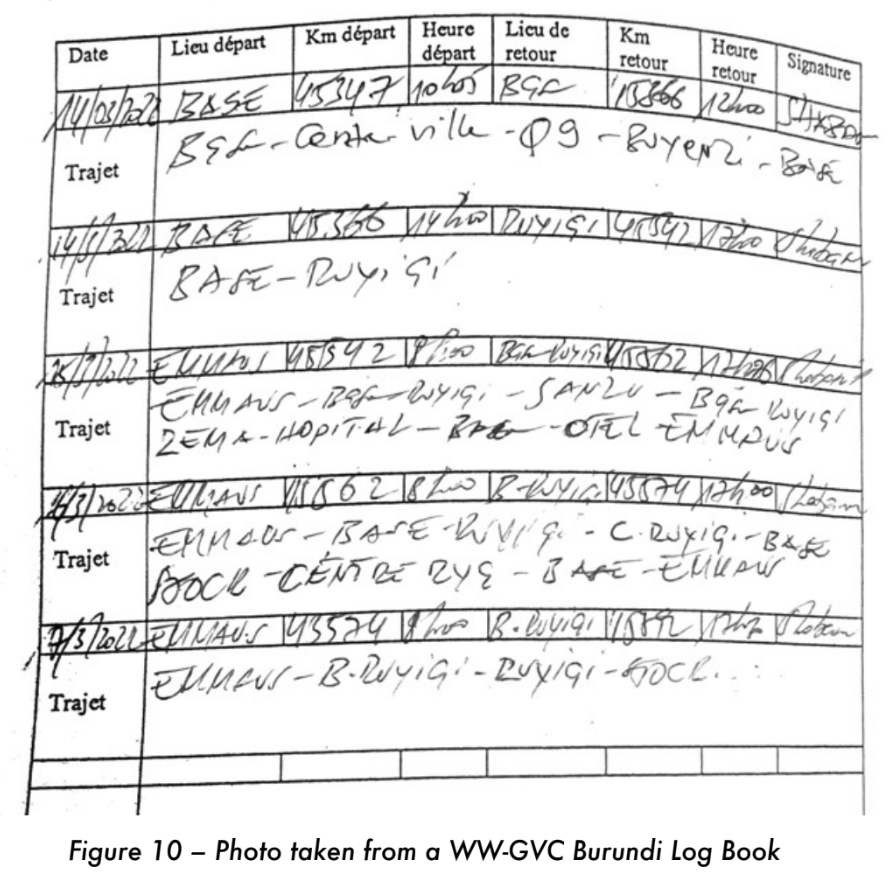
The WW-GVC logistics department needed a system that would allow them to visualize and analyze key performance indicators on the fleet, compare data across projects, and provide real-time data to better inform operational decisions, improve efficiency, and reduce costs. The system would also need to be easy to use, require minimal training for implementation and maintenance, and be easily scalable to deploy in different contexts. Coincidentally, WW-GVC was already using KoboToolbox for a number of projects in other countries and had their own server, which simplified data security. WW-GVC therefore decided to test and implement KoboToolbox as their fleet management data collection platform, piloting this initiative in Burundi.
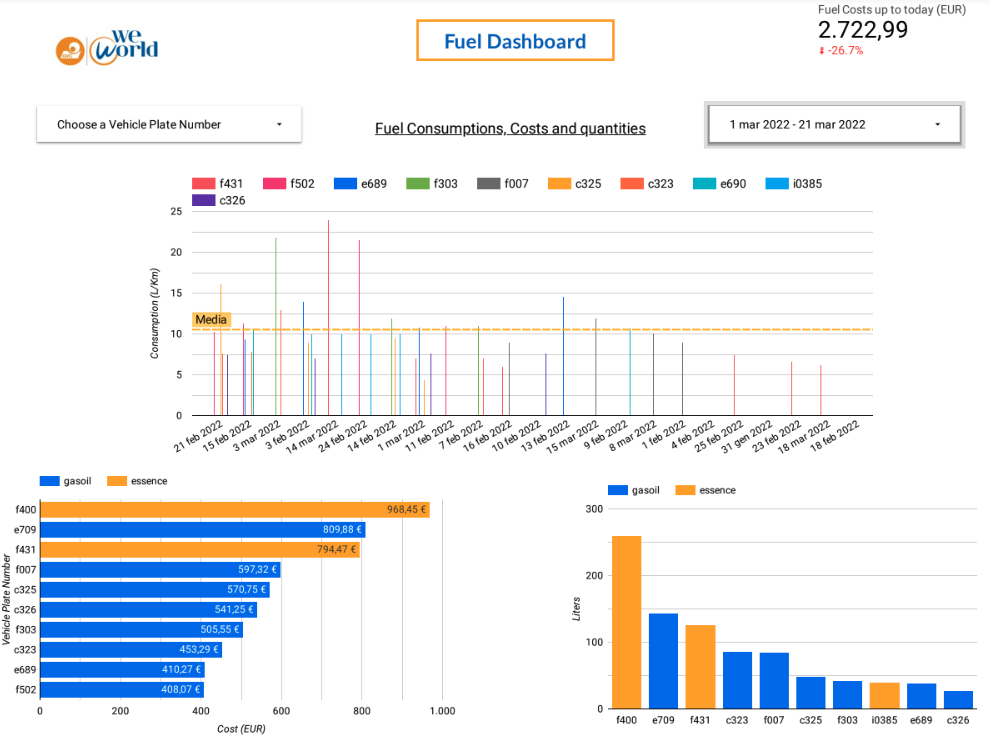
Using the online KoboToolbox Formbuilder, the WW-GVC team was able to successfully digitize the main tools used in fleet management, including vehicle logbooks, fuel refilling sheets, maintenance reports, and accident reports. Once the data collection forms were completed and tested, they were deployed in the field. The fleet drivers would play a key role in the success of the pilot. All the drivers created KoboToolbox accounts and set up the KoboCollect app on their smartphones. This was the first time using digital data collection tools for many of them, so the WW-GVC logistics department ensured everyone received individualized training on using KoboCollect to record and submit data.
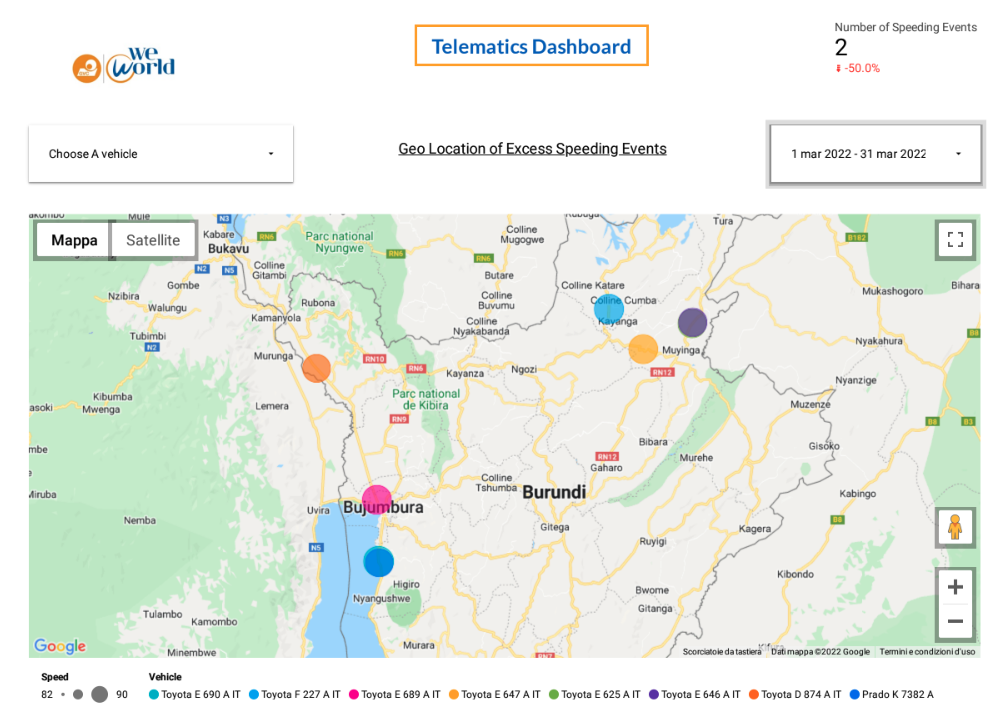
The WW-GVC logistics team was able to bypass manual data entry using KoboCollect since the data submitted can automatically be viewed in a table. This ensured greater data quality control through the use of validation criteria and gave the team access to better real-time data. In order to visualize the data in a dashboard, the team used the KoboToolbox API to connect the project to Power BI. The WW-GVC team also streamlined their process for accident reporting by using KoboCollect’s geolocation feature and media question types to easily collect location coordinates and submit photos.
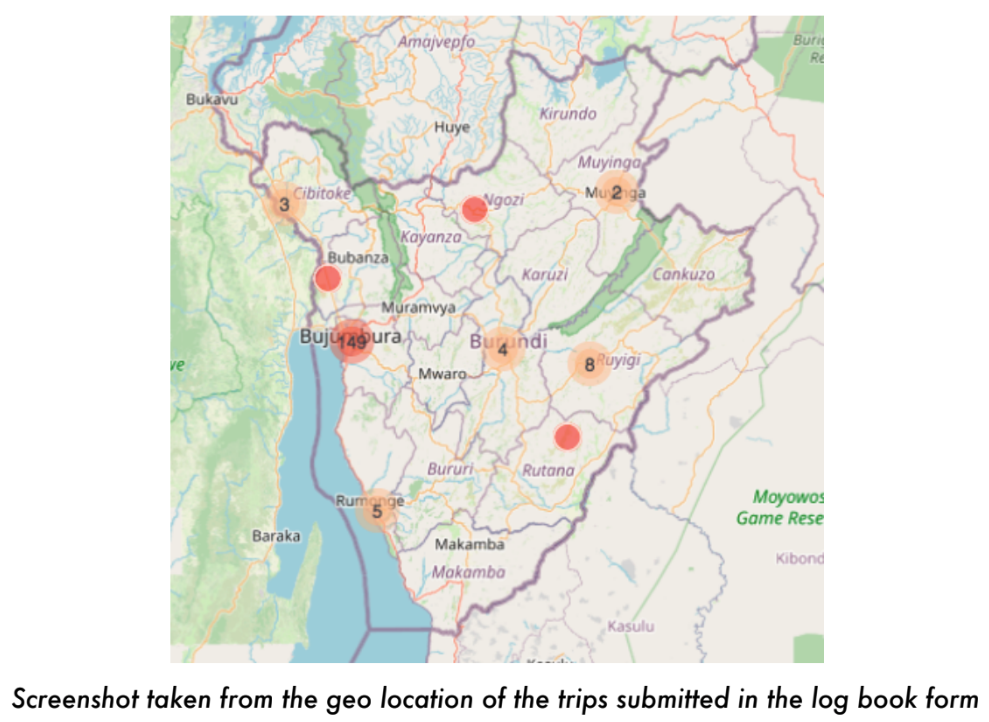
The WW-GVC drivers quickly adapted to the new system and were all successfully using it within the first week of implementation. Because the drivers do not always have internet access, a major advantage of using KoboToolbox is that it supports offline data collection. Drivers are able to collect data offline and then submit it to the server when they are connected to the WW-GVC office wireless network.
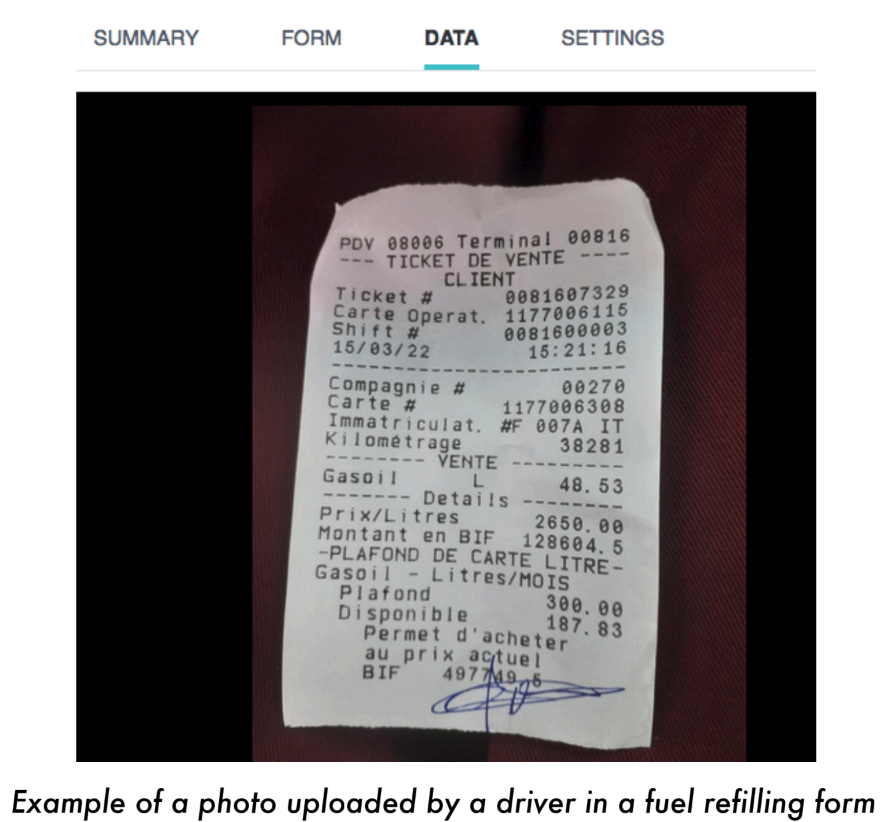
WW-GVC in Burundi continues to use KoboCollect to collect data on their fleet every week, as well as for other projects. With the success of the pilot initiative in Burundi, WW-GVC is now expanding their use of KoboToolbox for fleet management to other countries, eventually hoping to create a centralized dashboard based at their headquarters for fleet data reporting. As they continue to expand the reach of their fleet information management system, they have greater access to the data and insights needed for more efficient logistics and more effective crisis response.
